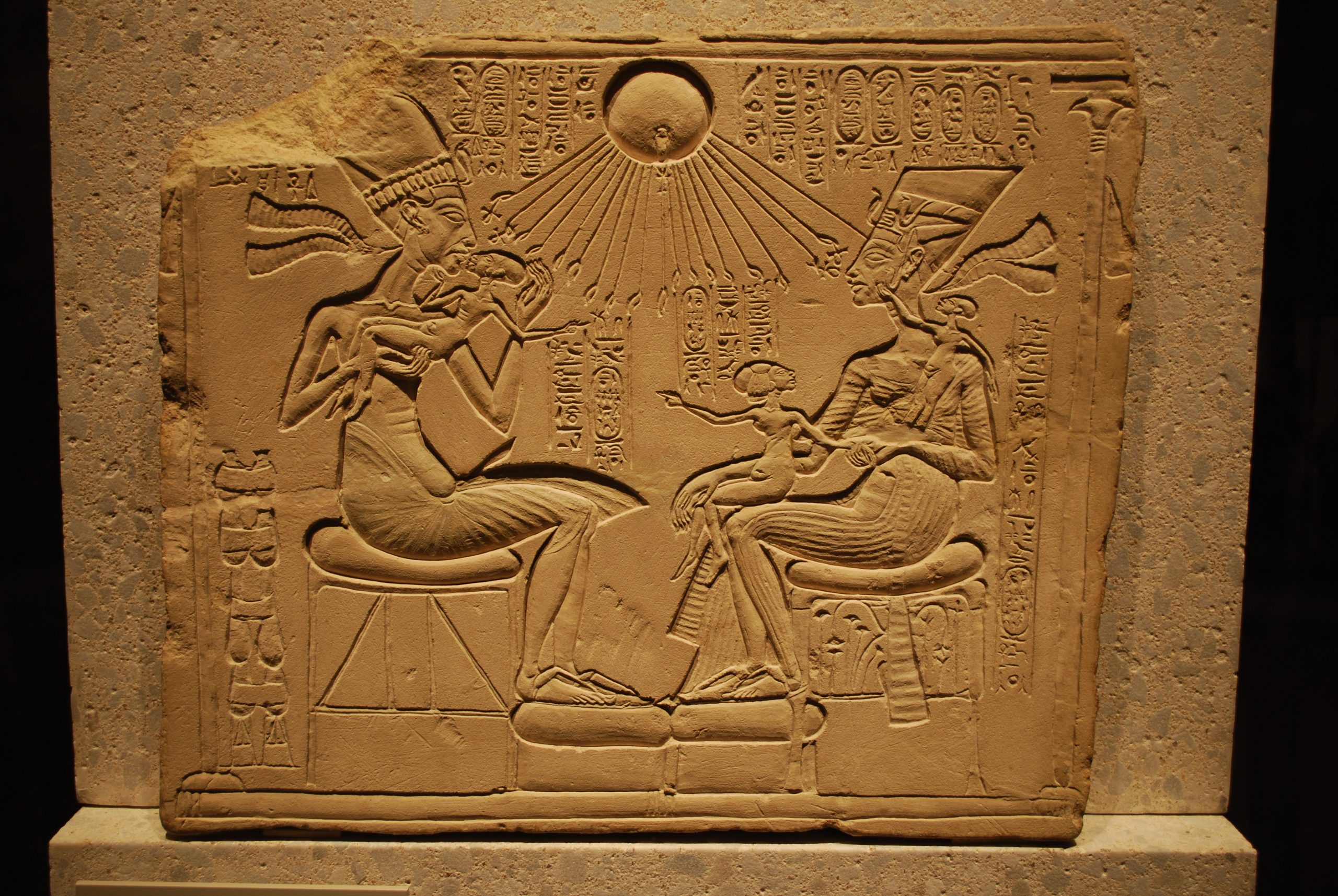Overview
Introduction
Ancient religions have played a crucial role in shaping the beliefs, values, and practices of human societies throughout history. These religions, which emerged in prehistoric times, laid the foundation for the development of organized religious systems and influenced the mythologies and rituals of ancient civilizations. Studying ancient religions allows us to gain insights into the origins of human spirituality and provides a deeper understanding of our cultural heritage. By examining the beliefs and practices of our ancestors, we can trace the evolution of religious thought and explore the fundamental questions about the nature of existence, morality, and the divine. This article delves into the fascinating journey of ancient religions, from their mythical origins to their enduring legacy in modern society.
Definition of Ancient Religions
Ancient religions can be defined as the spiritual belief systems that were practiced by early civilizations and prehistoric cultures. These religions encompassed a wide range of beliefs, rituals, and practices that were centered around the worship of various deities and the understanding of the cosmic forces that governed the world. They played a crucial role in shaping the cultural, social, and political aspects of ancient societies, providing a framework for moral and ethical behavior, guiding individuals in their daily lives, and offering explanations for natural phenomena and the mysteries of life. The study of ancient religions is of immense importance as it allows us to delve into the roots of human spirituality and gain insights into the evolution of religious thought throughout history. By understanding the beliefs and practices of ancient religions, we can also better appreciate the diversity and complexity of human religious experiences and their enduring impact on modern society.
Importance of Studying Ancient Religions
Studying ancient religions is of paramount importance as it provides us with invaluable insights into the beliefs, practices, and worldviews of our ancestors. By examining the origins and development of ancient religions, we can gain a deeper understanding of the cultural, social, and historical contexts in which they emerged. This knowledge allows us to appreciate the rich tapestry of human experiences and the diverse ways in which people have sought to understand and connect with the divine. Moreover, studying ancient religions helps us trace the roots of modern religious traditions and identify the common threads that unite different faiths across time and space. It allows us to recognize the enduring questions and concerns that have preoccupied humanity throughout the ages, providing a sense of continuity and shared human experience. Through the study of ancient religions, we can also explore the profound impact that these belief systems have had on shaping art, literature, philosophy, and societal norms. By delving into the mythological narratives, rituals, and sacred texts of ancient religions, we can uncover the symbolic meanings and archetypal motifs that continue to resonate with us today.
Origins of Ancient Religions

Prehistoric Beliefs and Practices
Prehistoric Beliefs and Practices
Prehistoric beliefs and practices refer to the religious beliefs and rituals that were prevalent in ancient societies before the advent of written history. These beliefs were deeply rooted in the natural world and the supernatural forces that governed it. Ancient cultures developed various rituals and practices to connect with these forces and seek their favor. These practices often involved sacrifices, offerings, and ceremonies that were performed in sacred sites such as caves, mountains, and rivers. The belief in spirits and deities was also a central aspect of prehistoric religions, with people worshiping and seeking guidance from these divine beings. The understanding of prehistoric beliefs and practices provides valuable insights into the origins of ancient religions and the development of human spirituality.
Early Civilizations and the Rise of Organized Religion
The rise of organized religion can be traced back to the early civilizations that emerged in different parts of the world. One such civilization is the ancient city of Knossos, located on the island of Crete. Knossos was the center of the Minoan civilization, which flourished from approximately 2600 to 1100 BCE. The Minoans had a complex religious system that revolved around the worship of various deities and the performance of elaborate rituals. Archaeological excavations at Knossos have revealed the existence of religious sanctuaries, temples, and sacred objects, providing valuable insights into the religious practices of the ancient Minoans. The significance of Knossos and the Minoan civilization in the development of ancient religions cannot be overstated. They represent a transition from prehistoric beliefs and practices to the establishment of organized religious systems. The discoveries at Knossos provide tangible evidence of the reality of ancient religions and their impact on the lives of early civilizations.
Influence of Mythology on Ancient Religions
Mythology played a significant role in shaping the beliefs and practices of ancient religions. Mythology refers to the collection of myths, legends, and stories that were passed down through generations. These myths often revolved around gods, goddesses, and supernatural beings, and they provided explanations for natural phenomena, human existence, and the origins of the world. Ancient civilizations, such as the Egyptians, Greeks, and Mesopotamians, developed complex mythological systems that influenced their religious rituals and beliefs. Mythological narratives were incorporated into religious ceremonies, festivals, and rituals, reinforcing the religious authority and traditions. The influence of mythology on ancient religions can also be seen in the iconography and symbolism used in religious art and architecture. Peruvian Colonial Mining Issues
Development and Spread of Ancient Religions

Religious Rituals and Practices
Religious rituals and practices played a central role in ancient religions, serving as a means of connecting with the divine and expressing devotion. These rituals were often elaborate and varied, depending on the specific beliefs and traditions of each civilization. Real History reveals that ceremonies such as sacrifices, prayers, and offerings were common practices in ancient religious systems. Additionally, rituals were performed in sacred spaces such as temples, shrines, and altars, which served as the physical manifestations of the spiritual realm. These sacred spaces were considered gateways to the divine and were meticulously maintained by priests and priestesses. The rituals themselves often involved intricate choreography, symbolic gestures, and the recitation of sacred texts. Through these rituals, ancient worshippers sought to establish a connection with the gods, seek their favor, and ensure the well-being of their communities. The importance of religious rituals in ancient religions cannot be overstated, as they formed the foundation of belief systems and provided a framework for understanding the world and one’s place within it.
Role of Priests and Priestesses
Priests and priestesses played a crucial role in ancient religions, serving as intermediaries between the mortal world and the divine realm. They were responsible for conducting religious rituals and ceremonies, interpreting omens and signs, and communicating with the gods and goddesses. Long keywords were highly respected and held significant influence within their communities. They were often the keepers of sacred knowledge and were responsible for preserving and transmitting religious teachings and traditions. Priests and priestesses were also involved in the administration of temples and religious institutions, managing the wealth and resources dedicated to the gods. Their role extended beyond religious duties, as they often served as advisors to rulers and leaders, providing spiritual guidance and divine insight. Through their rituals and practices, priests and priestesses maintained a connection between the mortal and divine realms, ensuring the well-being and prosperity of the community.
Expansion and Adaptation of Ancient Religions
The expansion and adaptation of ancient religions played a crucial role in their development and influence. As ancient civilizations grew and interacted with each other, their religious beliefs and practices were often shared and exchanged. This led to the spread of ancient religions across vast regions, resulting in a rich tapestry of diverse religious traditions. One such example is the Golden Hindu period in ancient India, where Hinduism flourished and underwent significant growth and transformation. During this time, Hinduism absorbed elements from other religions and cultures, incorporating them into its own belief system. This process of adaptation allowed ancient religions to remain dynamic and relevant in changing social and cultural contexts. Additionally, ancient religions often adapted to new political structures and power dynamics, aligning themselves with ruling elites to gain influence and support. This flexibility and adaptability contributed to the longevity and resilience of ancient religions, ensuring their continued relevance in the face of societal changes.
Conclusion

Significance of Ancient Religions in Modern Society
Ancient religions hold immense significance in modern society, as they provide a window into the origins of armored gauntlets and other cultural practices that have shaped our world. By studying these ancient belief systems, we gain a deeper understanding of the human experience and the development of complex societies. The rituals and practices of ancient religions, such as the use of sacred symbols and the performance of elaborate ceremonies, continue to inspire and influence contemporary religious and spiritual practices. Moreover, the legacy of ancient religions can be seen in various aspects of our modern lives, including art, literature, architecture, and even political systems. The continued relevance of ancient religious concepts, such as the belief in the divine and the search for meaning and purpose, highlights the enduring nature of human spirituality. Through the study of ancient religions, we not only connect with our shared human history but also gain valuable insights into our own beliefs and values.
Legacy of Ancient Religions
The legacy of ancient religions is vast and profound, shaping the beliefs, values, and practices of societies throughout history. One of the most significant contributions of ancient religions is the establishment of moral and ethical frameworks that continue to guide human behavior today. These religions introduced concepts such as divine justice, compassion, and respect for nature, which have become fundamental principles in many modern belief systems. Moreover, ancient religions laid the foundation for the development of religious institutions and the establishment of priesthoods, which have played crucial roles in preserving and transmitting spiritual knowledge. The legacy of ancient religions can also be seen in the rich mythologies and religious texts that have inspired countless works of art, literature, and philosophy. From the epic tales of gods and heroes to the profound wisdom of ancient sages, these narratives continue to captivate and inspire people across generations. In addition, ancient religious practices, such as rituals, sacrifices, and ceremonies, have left a lasting imprint on human culture, influencing everything from the way we celebrate important milestones to the structure of our social institutions. The continued relevance of ancient religious concepts can be seen in the enduring quest for meaning, purpose, and transcendence that remains a fundamental aspect of the human experience. As we delve into the origins and development of ancient religions, it becomes clear that their legacy is not confined to the past but continues to shape and inform our present-day understanding of spirituality and the human condition.
Continued Relevance of Ancient Religious Concepts
Ancient religious concepts continue to hold significant relevance in modern society. The development of belief systems during ancient times has shaped the way we understand and interpret the world around us. These early religious beliefs laid the foundation for the development of various philosophical and ethical systems that continue to influence our thoughts and actions today. Moreover, ancient religious concepts provide us with valuable insights into the human condition and the search for meaning and purpose in life. They offer alternative perspectives and ways of thinking that challenge our modern worldview, encouraging us to question and reflect on our own beliefs and values. Additionally, the legacy of ancient religions can be seen in the cultural and artistic expressions of different societies, as well as in the rituals and practices that have been passed down through generations. The continued study and exploration of ancient religious concepts allow us to connect with our shared human heritage and gain a deeper understanding of the diversity and complexity of human religious experiences.
Avid Writer with invaluable knowledge of Humanity!
Upcoming historian with over 30 million views online.
“You make your own life.”





